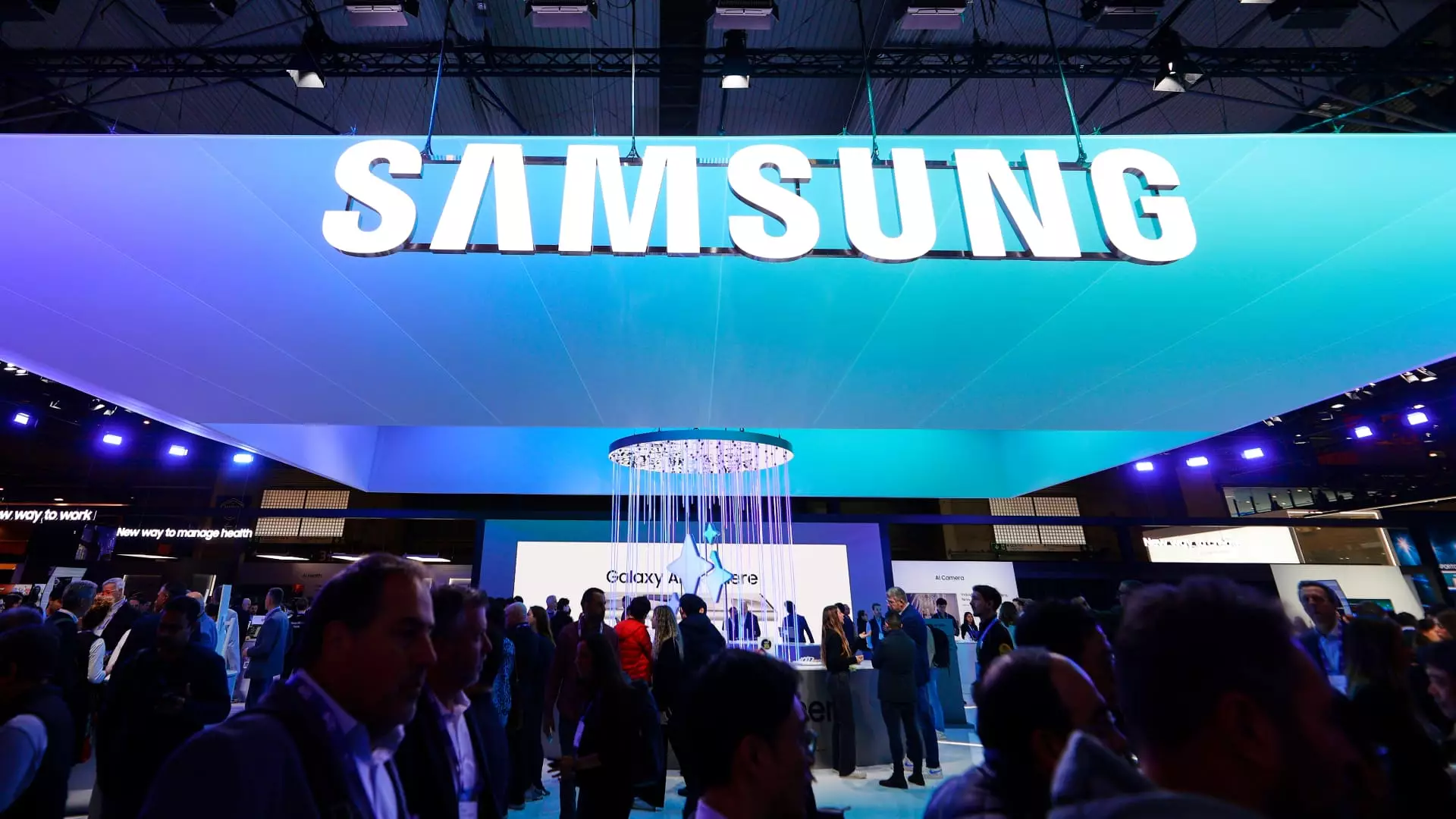In a surprising turn of events, Samsung Electronics, the South Korean technology powerhouse, has revealed that its anticipated profit for the third quarter of the fiscal year is significantly lower than market expectations. The company, renowned for being the foremost manufacturer of memory chips, indicated that its operating profit for the quarter ending in September is projected at approximately 9.10 trillion won (about $6.6 billion). While this figure represents a staggering 274% increase from last year’s profit of 2.43 trillion won, it nonetheless falls short of analyst predictions, which estimated an operating profit of 11.456 trillion won.
In addition to the disappointing profit outlook, Samsung’s anticipated revenue for the same period is forecasted to reach 81.96 trillion won ($61 billion). This projection, while substantial, highlights a crucial disconnect between Samsung’s internal expectations and those of market analysts. As the landscape for semiconductor demand shifts, particularly due to fluctuating consumer electronics markets, Samsung’s reliance on its memory business is becoming increasingly precarious.
Samsung’s Vice Chairman, Jun Young-hyun, who has recently taken the helm of the Device Solutions Division, publicly acknowledged the company’s struggles. In a rare moment of transparency, he issued an apology, attributing the downturn in the memory business to “one-time costs and negative effects,” which include inventory adjustments by mobile customers and intensified competition from Chinese memory manufacturers. This acknowledgment underscores the intricate challenges facing Samsung, particularly amid a recovering global economy.
Analysts like Daniel Yoo from Yuanta Securities Korea have expressed disappointment with Samsung’s performance. He notes that the company is not capturing market share as aggressively as it has in the past; a sentiment that raises questions about Samsung’s competitive strategy moving forward. The global demand for traditional DRAM chips—integral to the functioning of PCs and smartphones—has not seen a resurgence, potentially leaving Samsung vulnerable to more dynamic competitors. Furthermore, industry experts at Macquarie Equity Research suggest that Samsung must adapt its memory supply management to mitigate the impact of the declining DRAM market.
The report also notes that Samsung has taken drastic measures, with plans to reduce staff by 30% in some divisions globally, signaling an urgent need for restructuring in light of the current challenges. These developments are particularly concerning given the company’s prominence in both the memory chip sector and the smartphone market.
The ramifications of Samsung’s disappointing guidance have already begun to reverberate in the stock market, with shares of Samsung Electronics experiencing a drop of 22% year-to-date as reported by LSEG data. Following the guidance announcement, Samsung’s stock slipped an additional 0.98%, indicating a lack of investor confidence in the company’s near-term prospects.
As Samsung gears up to release its detailed third-quarter results later this month, all eyes will be on how the company navigates the turbulent waters of the tech industry. With high-profile competitors breathing down its neck and evolving market dynamics, the road ahead for Samsung Electronics may require a significant strategic overhaul to maintain its status as an industry leader.

